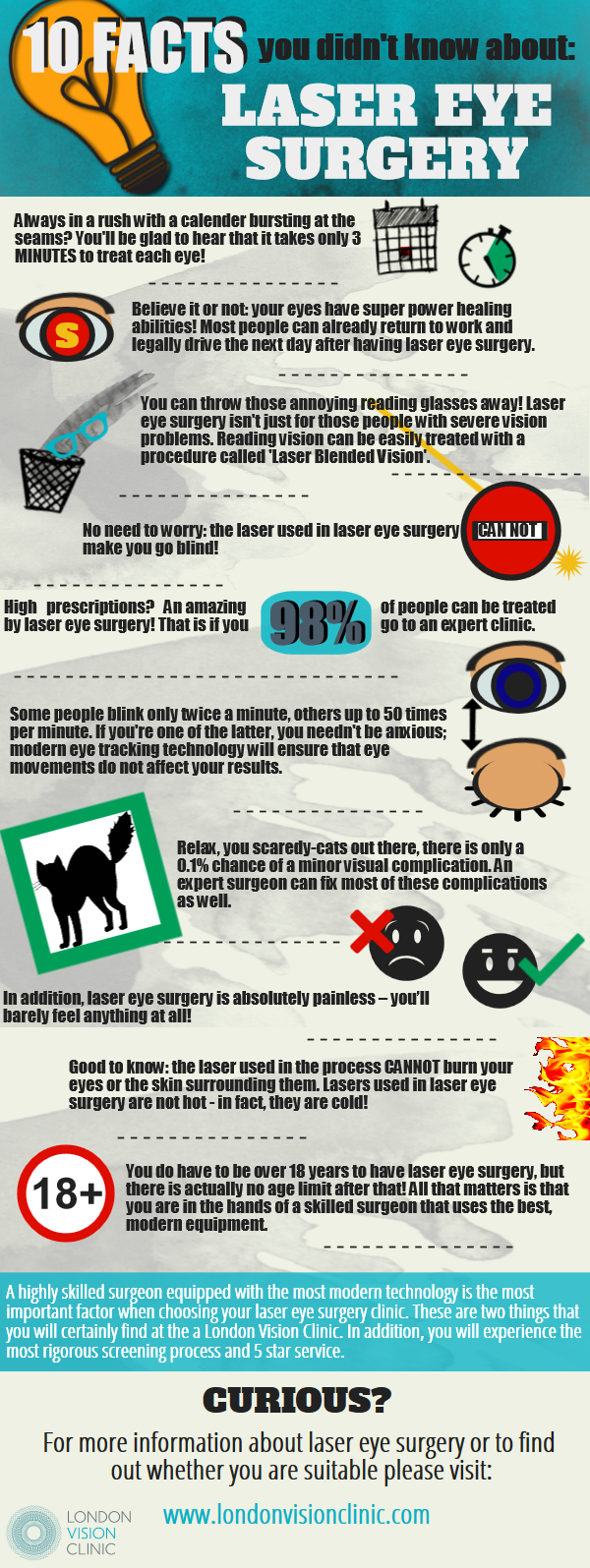Examining Choices Past LASIK: What Choices Do You Have?
Examining Choices Past LASIK: What Choices Do You Have?
Blog Article
Created By-Whalen Terry
If you're considering choices past LASIK for vision Correction, there are various choices worth discovering. From non-laser techniques like orthokeratology and PRK to implantable get in touch with lenses, the area uses a range of services customized to satisfy diverse requirements. Each alternative includes its unique benefits and factors to consider, making the decision-making procedure essential in figuring out the best suitable for your vision goals. Whether it's achieving clearer vision without surgery or looking for a more long-term option, recognizing these options can open a world of possibilities for your aesthetic health and wellness.
Non-Laser Vision Correction Techniques
Taking into consideration choices to LASIK, non-laser vision Correction methods provide options for people seeking vision improvement without going through laser surgery.
One common non-laser method is Orthokeratology, where special call lenses are worn over night to improve the cornea briefly, giving more clear vision during the day. This technique can be suitable for those who are hesitant regarding permanent medical adjustments to their eyes.
Another choice is PRK (Photorefractive Keratectomy), a procedure that improves the cornea without developing a flap, making it a selection for people with thin corneas or those at risk for eye injuries.
Additionally, phakic intraocular lenses can be dental implanted in the eye to fix vision, appropriate for those with high refractive mistakes.
These non-laser options may be worth discovering if you're seeking vision Correction but like to stay clear of LASIK surgery. Consulting with an eye care specialist can assist identify the best choice tailored to your details demands.
Implantable Get In Touch With Lenses
Implantable contact lenses provide a potential option for vision Correction without the demand for laser surgical treatment. These lenses, likewise called phakic intraocular lenses, are surgically placed inside the eye in front of the all-natural lens. They work likewise to regular call lenses but are placed within the eye, making them unnoticeable to others.
is lensx cataract surgery covered by medicare is optimal for individuals with high refractive errors who may not be suitable candidates for LASIK or other laser procedures. Implantable call lenses can fix a range of vision problems, including nearsightedness, farsightedness, and astigmatism.
The treatment for dental implanting these lenses is reasonably fast and minimally invasive, with lots of clients experiencing boosted vision quickly after surgical procedure. While there are threats related to any surgery, implantable get in touch with lenses have revealed to be a risk-free and reliable lasting service for vision Correction.
If you're thinking about alternative options to LASIK and favor not to go through laser surgical procedure, implantable call lenses could be a viable option worth exploring with your eye care provider.
Orthokeratology (Ortho-K)
Orthokeratology, typically known as Ortho-K, provides a non-surgical choice for vision Correction.
This approach entails using particularly made inflexible gas absorptive contact lenses over night. These lenses reshape the cornea while you sleep, offering clear vision during the day without the need for glasses or get in touches with.
top rated laser cataract surgery -K is specifically valuable for people with nearsightedness (nearsightedness) as it can momentarily fix refractive mistakes. Who Can Get LASIK is relatively easy to fix, making it an appropriate alternative for those reluctant regarding permanent operations like LASIK.
However, https://www.healio.com/ophthalmology/refractive-surgery/news/print/ocular-surgery-news/%7B6ae6acf7-bc4b-4ae3-9052-b811444e6f11%7D/monovision-lasik-refractive-lens-exchange-with-edof-iol-provide-comparable-outcomes to adhere to the suggested using schedule and care directions to maintain the preferred outcomes.
Ortho-K may not be suitable for everyone, and regular exams with your eye care copyright are vital to check adjustments in your vision and make certain the lenses are fitting correctly.
Final thought.
In conclusion, when considering choices to LASIK, options like orthokeratology, PRK, and implantable call lenses use effective services for vision Correction. Consulting with an eye care professional can aid you figure out the best option for your specific requirements and preferences. Whether you choose orthokeratology for momentary reshaping, PRK for flapless corneal reshaping, or implantable contact lenses for long-term Correction, there are various alternatives offered to improve your vision without undergoing standard laser surgical treatment.
